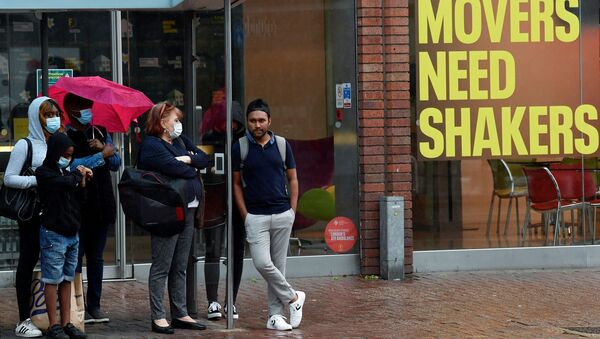The city is the first region in the UK to experience a local lockdown with communities and authorities pleading for more clarity from the government. With more on this story, Sputnik spoke to Jennifer Boddy, Associate Professor at Griffith University, Australia.
Sputnik: Why do authorities struggle to get people to follow restrictions during lockdown - particularly for a second time around?
Jennifer Boddy: I mean, I think there are a few reasons for it but certainly people are feeling an incredible amount of fatigue and complacency as time goes on. We know from a recent survey that we did at Griffith University that one of the key drivers for people complying with restrictions is their sense of moral responsibility.
So their sense of care for others, compassion for others, but also that sense of doing the right thing and seeing it as morally wrong to fight restrictions. So that's really important that people have a sense of moral responsibility and part of what influences people is their sense of risk as well.
So if people feel that they have a heightened risk due to their own health concerns, they're more likely to comply or if they perceive a greater risk, that they will be penalised for not complying.
That will also influence their behaviour, but fundamentally having a sense of moral responsibility and also a duty to the government or a sense of duty, quite big drivers in people's behaviour.
Sputnik: Will greater police powers necessarily ensure lockdown restrictions are followed by citizens and if not, what else needs to accompany these additional powers?
Jennifer Boddy: I think law enforcement is one strategy but it needs to be one of many strategies that are used to enforce lockdown and what will make law enforcement effective in changing people's behaviour is their sense of risk that they may be penalised.
Increasing fines or increasing threats of arrest don't actually tend to change people's behaviour and make them voluntarily comply with the law. It's about people perceiving the risk to non-compliance.
So I think that's a really important part of law enforcement, it's about that perception of risk and instilling that in some way, not to make people fearful, but in order to give people a sense that they need to comply but that is only one small component of what needs to be a much larger strategy.
Previous research suggests that the more educated people are about the risks, the more knowledge they have about a pandemic, the more likely they are to comply. So part of the solution does need to be around education and education campaigns.
There needs to be really clear messaging from the government, that people understand, that is nuanced to different groups of people. So there should be different messaging with children, for example, then with adults. It needs to be clear consistent messaging but needs to be nuanced for the groups that are being targeted, and that's also really important.
Jennifer Boddy: I think it probably is everyone's responsibility. We are in effect all in this together and we're all affected by it, so everyone has a responsibility individually and at government, levels to do our best to stop the spread of COVID-19.
We need it in a sense to become socially unacceptable to not comply, so that much like smoking over time, certainly in Australia, it's not socially acceptable to do that and we need people to feel that same way when people flout flat the restrictions.




